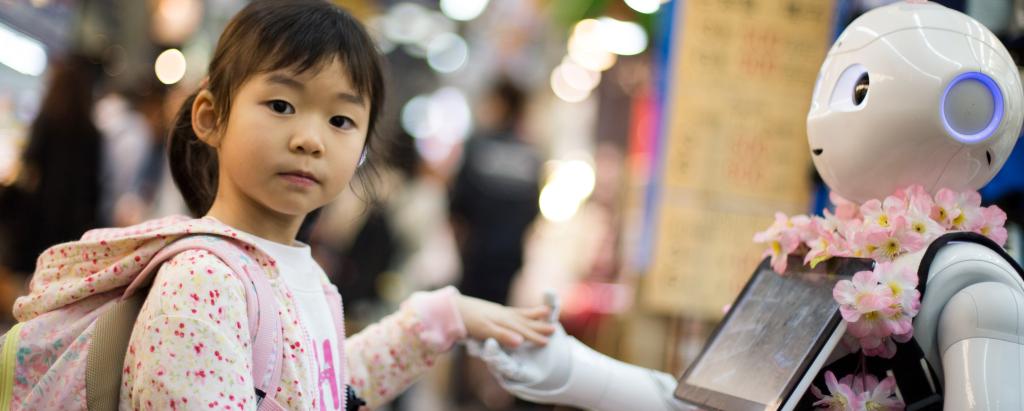
Trend: New Learning Agents
A trend indicates a direction of change in values and needs which is driven by forces and manifests itself already in various ways within certain groups in society
The term ‘educator’ has a very specific meaning to most of us, but the term is evolving as the learning ecosystem diversifies. Teachers are taking up new roles and new agents of learning are emerging.
The ‘traditional’ teacher will shift roles and team-up with others, joining forces with other ‘new’ types of teachers. New types of educators, robots and people in the surrounding communities of the school area (i.e. individuals, companies and municipalities) will support teachers to educate their students in the best possible way.
This Trend is part of the Megatrend Diversification of education and learning
Manifestations
Developments happening in certain groups in society that indicate examples of change.
New ‘teachers’
New learning ecosystems are emerging. Alongside the ‘traditional’ teacher roles, new types of educator roles are starting to appear. New roles such as ‘edu-vators’ - people who explore innovations in the learning sphere, ‘community intelligence cartographers’ - people who map the collective intelligence of their local communities, or ‘assessment designers’ - people who create more appropriate new methods for evaluating learning experiences’.
Signals of change: Knowledgework, Researchgate, Teacher Networks, the Learning Counsel
Human or Robot
Real teachers versus online technology systems: how will they merge and combine to give the best education to students. As technology is being used for more personalized learning already and artificial intelligence (AI) is finding its way into schools, robots will become a valuable assistant in the classroom.
Signals of change: Springer, Educationworld, European Commission, Builtin
Community Engagement
Teaching is one of the most important jobs in the world, so we celebrate teachers, but it is not solely the responsibility of a teacher to educate our youth. Increasingly, the wider local community is pitching in and becoming involved in teaching students’ new insights. For example, a father working for the government might visit a school to explain politics to students, a local farmer might showcase how cows are milked, and so on. In this way, the teacher can focus on the pedagogics, and at the same time can complement their knowledge by bringing other 'up-to-date knowledge' to the classroom via their 'visiting guest'.
Signals of change: OECD, ACER, LAUREA
Learning labs
Business, government and education are joining forces and creating (often online) innovation laboratories together. They are doing this jointly to explore the future of their professions, because we are in the midst of rapid change in society and in the workplace. New technologies, experiments and inventions will show us the possibilities for the future. Joint discussions will help us to steer the directions towards the future we prefer.
Signals of change: Lentiz, UN Environment Programme
Interesting questions
What might this trend imply, what should we be aware of, what could we study in more depth? Some ideas:
-
What issues could arise when adopting new educator roles?
-
How can we ensure that all students have access to the new agents of teaching?
-
How can we assess the effectiveness of using educational robots? And will they have a competitive advantage in comparison to human teachers?
| Originally Published | Last Updated | 18 Mar 2021 | 29 Nov 2021 |
| Knowledge service | Metadata | Foresight | The Megatrends Hub | Diversification of education and learning |
Share this page
